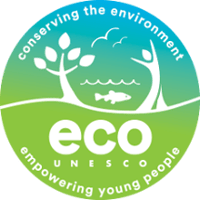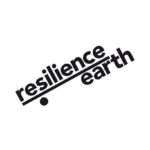What's already happened?
Aisling McEvoy (A ECO-UNESCO volunteer)
”Last week I participated in ‘The Heat Is On’ ECO UNESCOs’ International Youth Summit. I enjoyed meeting young people and activists from Ireland, Scotland and Catalonia. There were so many amazing speakers from different backgrounds who shared their journeys in the speaker panels. I learnt so much from the panelists and young people alike. The young people were so enthusiastic and knowledgeable, I was captivated by all their amazing ideas and discussions. I learnt just how much more there is to learn about climate action and the sustainable development goals and that we equally learn from young people as they do from us.
In the main room we listened to speakers including last year’s Young Environmentalists Award winners and experts working to promote the Sustainable Development Goals. We dispersed into breakout rooms where the young people had the opportunity to participate in structured dialogue and to develop skills that will assist them with their action projects. Our breakout room discussed carbon and the important role the peatlands in Ireland and Scotland have in capturing carbon. I enjoyed the creativity of the young people and how articulate they were in conveying their questions and input.
The Youth Summit was a welcome break from the worries of Covid-19. We all had so much fun discussing, creating and taking action. Despite coming from different countries and speaking different languages, the young people came together to effectively discuss shared problems they were all experiencing and the action that is being taken in their own locality to combat these issues. It was beneficial to the young people to hear others of similar age opinions and experiences of how climate change affects their local area.
Having participated in previous years of the Youth Summit, I saw the benefits of this years’ online series of events. Many more young people and speakers were able to attend which widened the base and extent of discussion. I thoroughly enjoyed the Youth Summit so far and I look forward to meeting all the young people again at the next event.”
The Heat Is On. Take One
During the youth summit the participants were asked to choose an environmental topic that interested them the most. The groups were divided by topic into different breakout rooms. Through a variety of facilitated activities the groups discussed their knowledge on their chosen topic and created questions they had for policy makers and politicians.
At the following Summit event, participants of the youth summit met eight environmental experts from Catalonia, Scotland and Ireland. The groups were divided back into their breakout rooms and had the opportunity to practice their structured dialogue with the expert and ask them questions, in preparation for when they get to meet real politicians in March.
See below for questions young people have on the climate change issues;
Climate Change
- Will the remedies to climate change be worse than the disease? Will it drive more people into poverty with higher costs? When creating policies are you considering permanent solutions to protect our future generations or temporary solutions for now?
- Will the actions we take today be enough to forestall the direct impact of climate change or is it too little too late?
- What are the crucial steps to change the temperature of the globe?
- Add more bus stops a routes to encourage people to use public transport as opposed to cars. Free transport for anyone attending school/college.
- Block the selling of plastic straws and replace with metal or paper straws.
Marine
- Is there any interesting marine technology being made that will help reduce marine plastics?
- Are marine plastics actually the most damaging thing to marine life right now? Or is there something worse?
- Are there any types of plastic that are particularly harmful to the marine world or do they all have the same compounds?
- have there been any new laws introduced to protect marine life?
- Is there a tipping point after which we won’t be able to save the seas?
Biodiversity
- How is an increase in zoophytic diseases affecting biodiversity? Is the number of host animals per virus increasing due to pressure on animal habitats?
- Can we encourage more planting of trees ?
- What do you think of selective breeding of coral plants which are more resilient to global warming?
- Introduce more wildlife bridges on our roads
- What action can we take against poaching?
Carbon & Fossil Fuels
- Offshore wind farms
- Import green energy e.g. geothermal energy from Iceland
- Govt provide grants on green energy
- Import green electricity instead of fossil fuels
- Govt provide green energy grants
- Green transport – green rail
- Fossil fuels should not have a say in climate negotiations
Eco-Tourism
- Research new methods for sustainable air travel
- Improve water treatment facilities in rural tourist hot spots
- Personal benefits of eco-tourism; Better education on the benefits of eco-tourism and why its important to the environment
- More maintenance over waste management in big areas
- Use more environmentally friendly modes of transportation
- Promotion of eco-tourism spots
- Limitations on access to natural environments e.g. the Burren
Agriculture
- How much of an impact do the environmental changes have on farmers and how do they adapt?
- Bales, Silage pits, and other farming methods use a lot of plastic. How much plastic waste is produced by farmers and are there any alternatives?
- How can we encourage and reward farmers to be more sustainable?
- What are alternative pesticides that are better for the environment and practical for farmers on a larger scale?
- Is there a platform for farmers to speak about farming and how the public could help them become more sustainable as a farmer?
- What are the incentives that promote sustainable farming that has made an impact and how can we replicate these for other areas (like tree-planting grants for example)
- Could we look at the packaging being used? Meat and Veg usually come in non-recyclable packaging
- How could we encourage Irish farmers to change to more sustainable ways example encouraging them to invest in facilities such as biogas plants
- Many farmers believe that having more animals means you will be making more money, but this is not exactly the case as due to inflation in animals in the country the likes of beef have become cheaper to buy this means that farmers are working harder for way less. if we could encourage farmers to have their heard sizes their beef would become more valuable, and it would also reduce the amount of pollution caused by livestock and decrease the pollution in waterways and the soil would be able to thrive more because there would be less nitrogen spread on land the problem with is trying to persuade farmers to do this so how
Activism
- How do we increase participation in environmental matters
- What’s the best way to engage other people if they don’t really care
- What do we as a society need to do to become greener and more efficient?
- How do we contact activists in order to make a change?
Energy
- Reform planning laws as they currently hamper the creation of more environmentally friendly infrastructure – i.e. building ring roads to prevent unnecessary time spent on the roads and accelerating/deaccelerating.
- major investment into fitting more quick charging points on motorways to make peoples daily commute possible in an electric car
- Coastal towns have given grants to implement renewable energy
- make renewable energy more affordable for the everyday citizen
Want to know more? Or register for next year!
Contact LK at laurakate.howells@ecounesco.ie or call us on (01) 662 5491
Our funders






